When my mum and I arrive in Rome’s Trastevere district, the following message greets me, a few houses down the same street of our charming guesthouse where we are staying (for the second time):
siamo fatti di versi e non diversi fatti di parole che vanno a capo anche quando non te lo aspetti di rime che a volte si baciano siamo poesia scritti su scontrini consumati su foto ingiallite, su libri stampati qualcuno forse ci impara a memoria e per uno che scorda un altro ricorderà ma indelebili ed eterni noi siamo poesia e viviamo su muri di questa città
Naturalmente, everything sounds so much more bellissimo in italiano, so forgive me for butchering the beauty of this poem into my poorly translated English, but here is my best attempt:
we are made of verses and not various facts made of words that go to the head even when you don’t expect rhymes that sometimes kiss we are poetry written on worn receipts on yellowed photos, on printed books some may learn us by heart and for one who forgets another will remember but indelible and eternal we are poetry and we live on the walls of this city
And now, need you ask why I’m completely in love with Rome?
I have been distracted – or, supported – by a lot of poetry these days. Everywhere I look, I find poetry. Whether it is
’s beautiful poems that are delivered regularly into my inbox, a random poetry I stumble across on the internet, a poem that surprises me in the pages of The New Yorker, or a favourite book of poetry I am impelled to take off my bookshelf and re-read.In this post I would like to share with you some of the most beautiful, heartbreaking, and uplifting poems I have come across, in the hope that they can bring some beauty and comfort into your life.
1. My Father in English by Richard Blanco
First half of his life lived in Spanish: the long syntax of las montañas that lined his village, the rhyme of sol with his soul—a Cuban alma—that swayed with las palmas, the sharp rhythm of his machete cutting through caña, the syllables of his canarios that sung into la brisa of the island home he left to spell out the second half of his life in English— the vernacular of New York City sleet, neon, glass— and the brick factory where he learned to polish steel twelve hours a day. Enough to save enough to buy a used Spanish-English dictionary he kept bedside like a bible—studied fifteen new words after his prayers each night, then practiced them on us the next day: Buenos días, indeed, my family. Indeed más coffee. Have a good day today, indeed— and again in the evening: Gracias to my bella wife, indeed, for dinner. Hicistes tu homework, indeed? La vida is indeed difícil. Indeed did indeed become his favorite word, which, like the rest of his new life, he never quite grasped: overused and misused often to my embarrassment. Yet the word I most learned to love and know him through: indeed, the exile who tried to master the language he chose to master him, indeed, the husband who refused to say I love you in English to my mother, the man who died without true translation. Indeed, meaning: in fact/en efecto, meaning: in reality/de hecho, meaning to say now what I always meant to tell him in both languages: thank you/gracias for surrendering the past tense of your life so that I might conjugate myself here in the present of this country, in truth/así es, indeed.
You can also listen to Richard Blanco read this poem (that reduces me to tears every time, even if I have read it at least twenty times)
2. I revisit Marie Howe’s What the Living Do every time I experience a loss and need to be reminded of how to carry on living with the grief. It is a heartbreaking, yet beautiful, life-affirming poem:
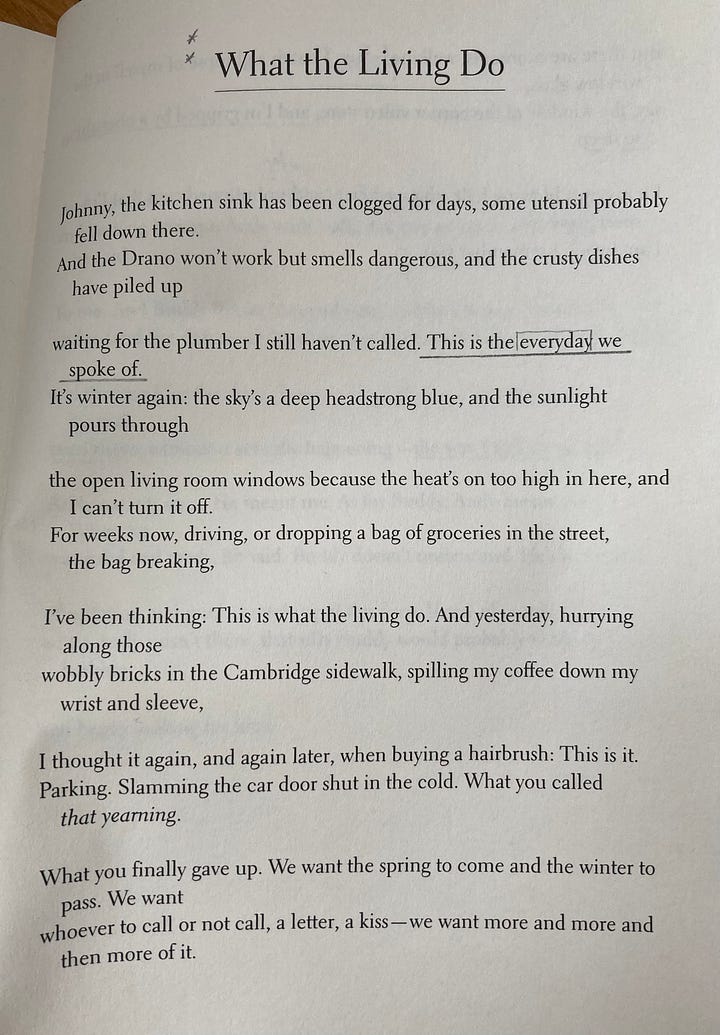
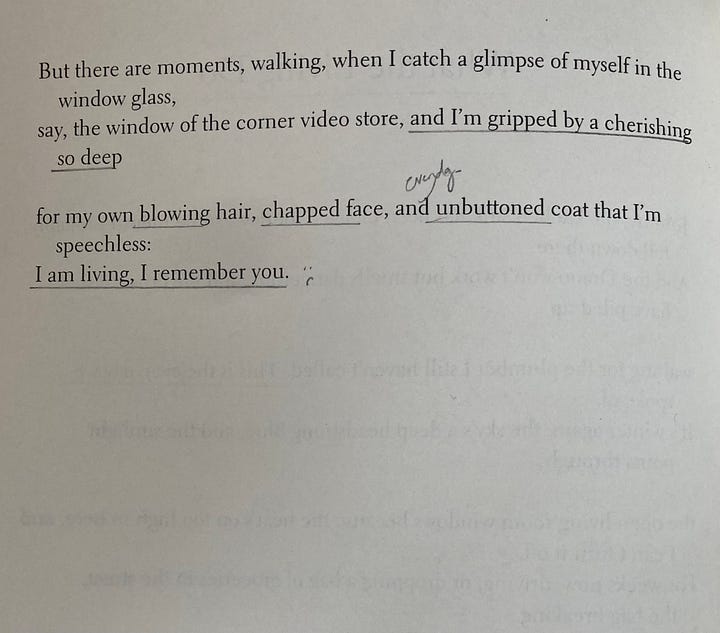
3. Marguerite Andersen’s La mauvaise mère continues to be a huge inspiration to the book I am working on right now. It was the first book I read in French (and as you can see from the pictures, I am a very diligent student!). Marguerite Andersen’s “retraces the important moments of her life. A full, difficult and touching life” – in confession-like prose poems. Stunning work.

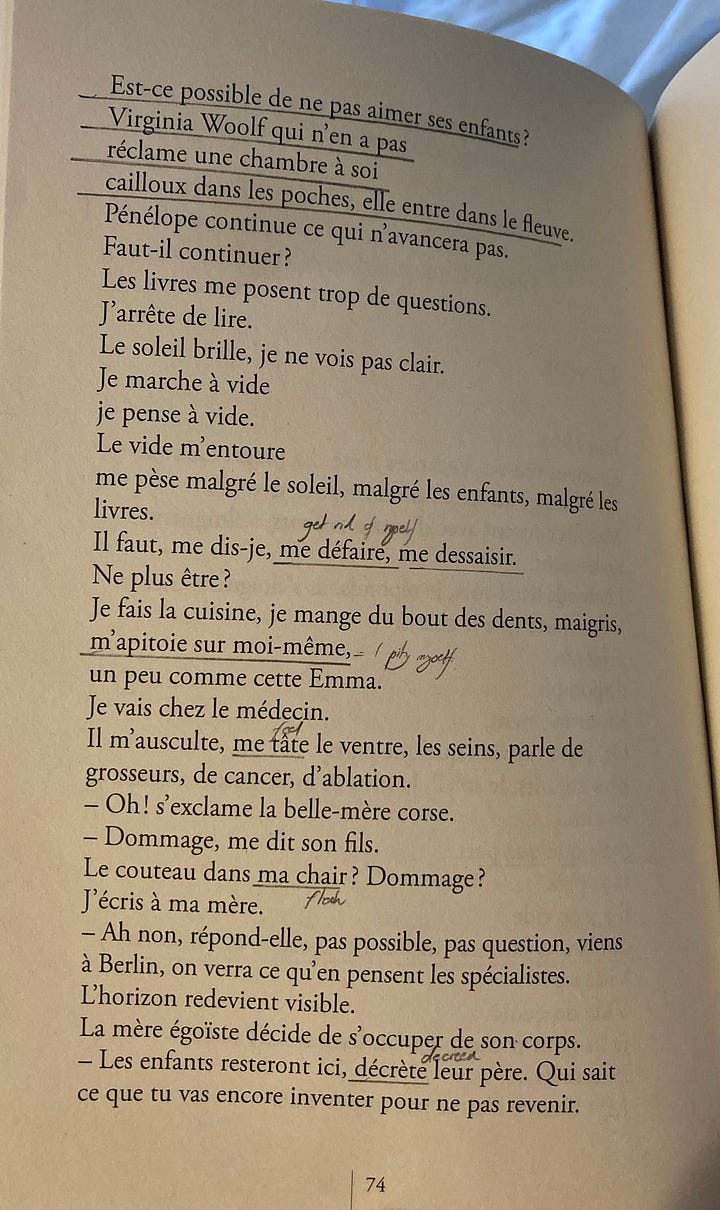
4. I came across Eileen Myles work while I was at Concordia university. What I appreciate the most about her poems are her vulnerability, mixed with (dark) humour. Not an easy balance to pull off!
Political Poems
Some would say that politics have no place in literature; some would argue the reverse: that everything (directly or indirectly) is political. What moved me so much in the following three political poems is the personal story that they are telling. In my humble opinion, they are the most powerful works of resistance that are reminding us of our shared humanity.
5. I first read Ilya Kaminsky poem at The New Yorker and it took me minutes to order his book the Deaf Republic. Check out his extraordinary, original work here.
6. I was already a fan of Māori writer Witi Ihimaera’s work, but hadn’t heard of Australian Aboriginal poet Ali Cobby Eckermann. I was cooking dinner while listening to Writers and Company and I remember dropping everything and rushing to my writing notebook to capture something she had said – that later inspired me to write a short story, which I am now hoping to turn into a full-length novel. I won’t tell you what she said, because I want you to listen to the full interview! Trust me, it is a gift!
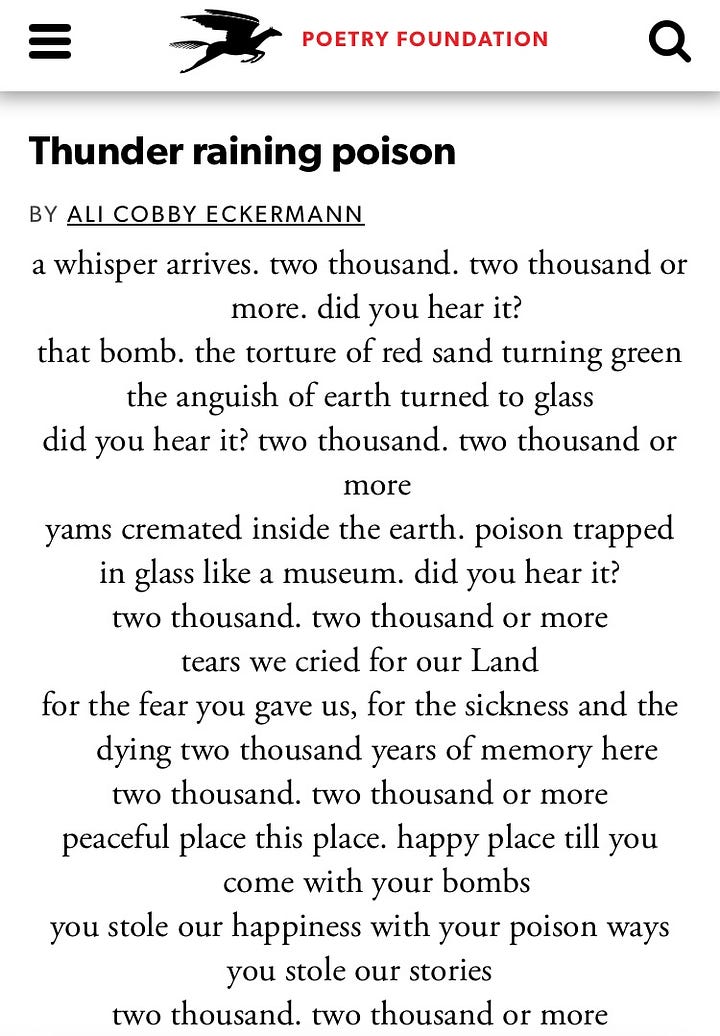
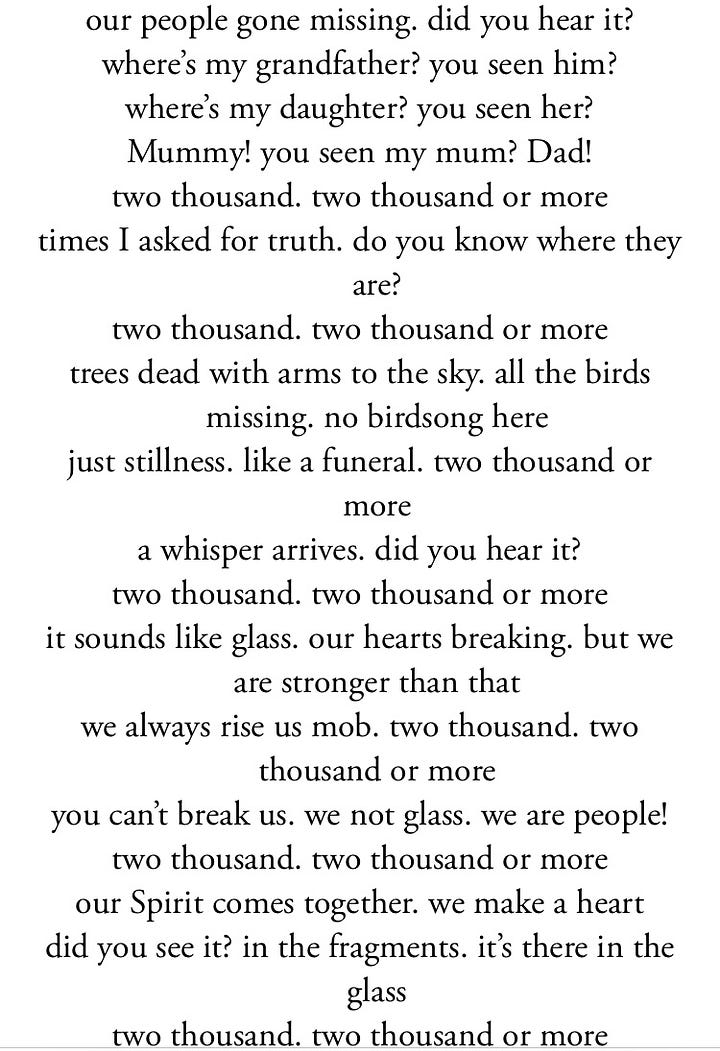
7. The following poem by professor and writer Rafaat Alareer found me on the internet a few days after he had been killed. It is chilling to think what would have happened had he not written this poem. Would he have been classified as yet another nameless number among the unfortunate “collateral damage”? This poem, for me, is evidence of how powerful poems can be: they can give you a name, and portray you as an actual human being. You can also listen to this chilling read of this poem by actor Brian Cox here.
Poems in other languages
8. I consider myself a very bad Hungarian when it comes to Hungarian literature and history, so now in my adult years I make an effort to read also in my mother-tongue. The following poem is from one of the greatest Hungarian poets Ady Endre (1877-1919) and the scribbles on the page are my (futile) attempts at translating this poem into English.
9. While living in Madrid I picked up a small pocket poetry book from a poet I had never heard of Luis Alberto de Cuenica because I loved the title: Ahora y siempre. This is how I was learning Spanish! Infinitely more challenging than reading Hola!, but so much more rewarding.
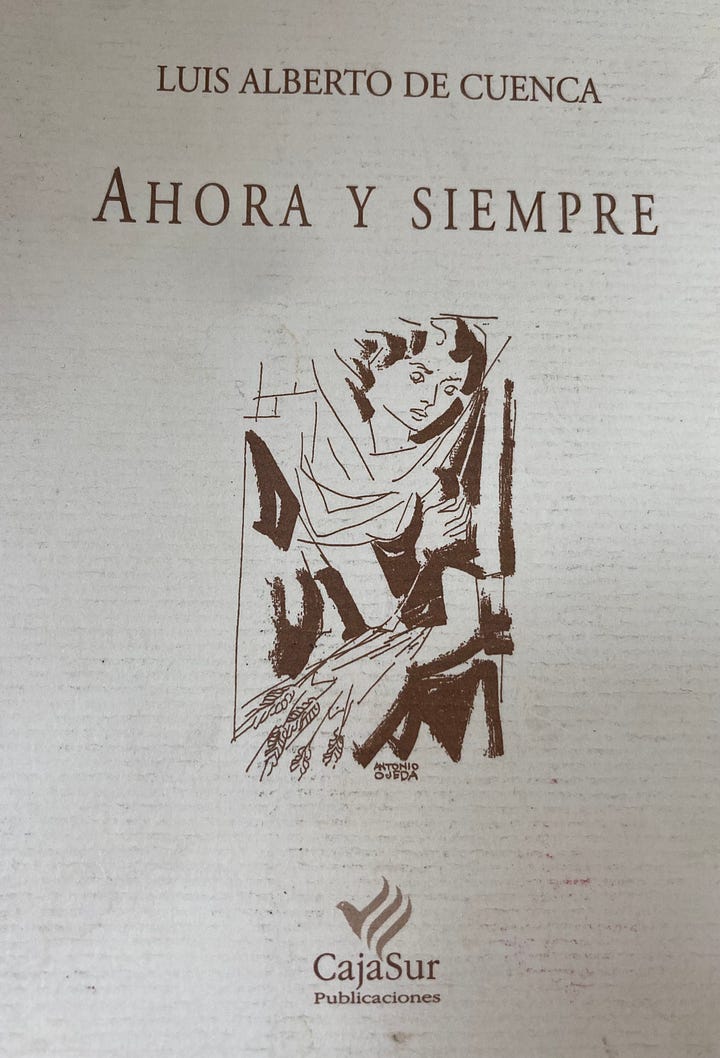

I want to emphasize that this is a very selective ensemble of some of the poems that have inspired me lately. I can’t say that they are my favourite, because to choose your favourite poems is like trying to choose your favourite children: an impossible task! And I haven’t even raved about the poems of my favourite writer/poet Aïcha Martine Thiam whom I am lucky to call a friend. Her writing merits an entire post. In the meanwhile, if you are curious, you could check her impressive work here.
If you are inspired, I would love to hear from you in the comments:
Which of these poems spoke to you most intimately, and why?
Would you care to share some of the poems that inspire you? I love discovering poetry!
In my next post, I will write about my process of making friends with the idea of writing poetry (in my third, fourth, fifth and sixth language!) and the extraordinary poetry teacher who helped me embrace this idea.
May beautiful, heartbreaking and inspiring poems remind you of the complexity and preciousness of life!
Love,
Imola





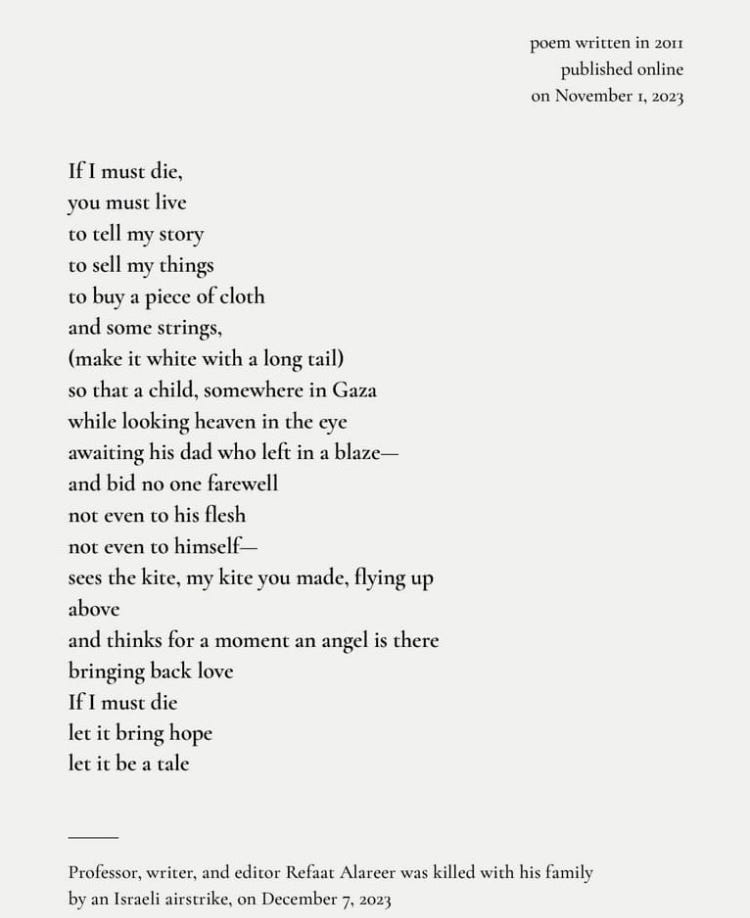

Beautiful post. Read this right after and thought your readers may like it too:
https://www.themarginalian.org/2015/01/22/tove-jansson-moominland-midwinter-moomintroll/